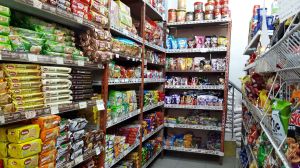We Asked Users
This survey was presented to a prequalified TCD audience in contextually relevant web articles and newsletters.
Survey participants self-selected two times, first when deciding to consume the host content and then again when deciding to participate in the survey.
Would you buy juice or yogurt made with bruised or misshapen fruit?
Please select one.
Would you buy juice or yogurt made with bruised or misshapen fruit?Survey Results
657 Risk Focus:
3,681 Money Focus:
512
Aggregate Insights
The strong majority vote for "If I couldn't tell the difference" suggests that perceived normalcy is the single most important factor driving upcycled food adoption.
The 29% combined voted for "If it were cheaper" and "If it were healthier" suggests that a meaningful number of potential adopters need special convincing to choose upcycled foods.
Further polling could (a) explore sentiment among "I'd never buy it" respondents to determine the source of their disinterest and (b) explore which upcycled foods are most attractive to consumers.
Contextual splits are determined by the topical focus and interests of the audience members participating in the survey, as described in more detail in the Insights and Methodolgy sections below.
657 Risk Focus:
3,681 Money Focus:
512
Split Insights
The consistent overperformance of "If I couldn't tell the difference" across all three splits underscores consumers' openness to upcycled foods that they perceive to be normal.
The relative overperformance of "If I couldn't tell the difference" among the risk-focused audience suggests a meaningful opportunity to educate risk-averse customers about the safety and quality of upcycled foods.
Further polling could explore sentiment among the "I'd never buy it" segment of the waste-focused audience to determine (a) if the group believes buying upcycled foods to be an effective tactic in reducing food waste and (b) what alternative steps the group prefers to reduce their own personal waste.
Methodology
This poll was conducted among a prequalified TCD audience of likely adopters via distribution in 13 syndicated web articles. It received a total of 7,419 responses and generated segmented data across 3 primary contextual splits.
TCD surveys are embedded inline in contextually relevant web articles and newsletters. Survey participants self-select two times, first when deciding to consume the host content and then again when deciding to participate in the survey.
Contextual splits are determined by the topical focus and interests of the audience members participating in the survey. Split analysis explores the degree to which different messages — and the self-selected participants who seek them out — can shape consumer sentiment.







